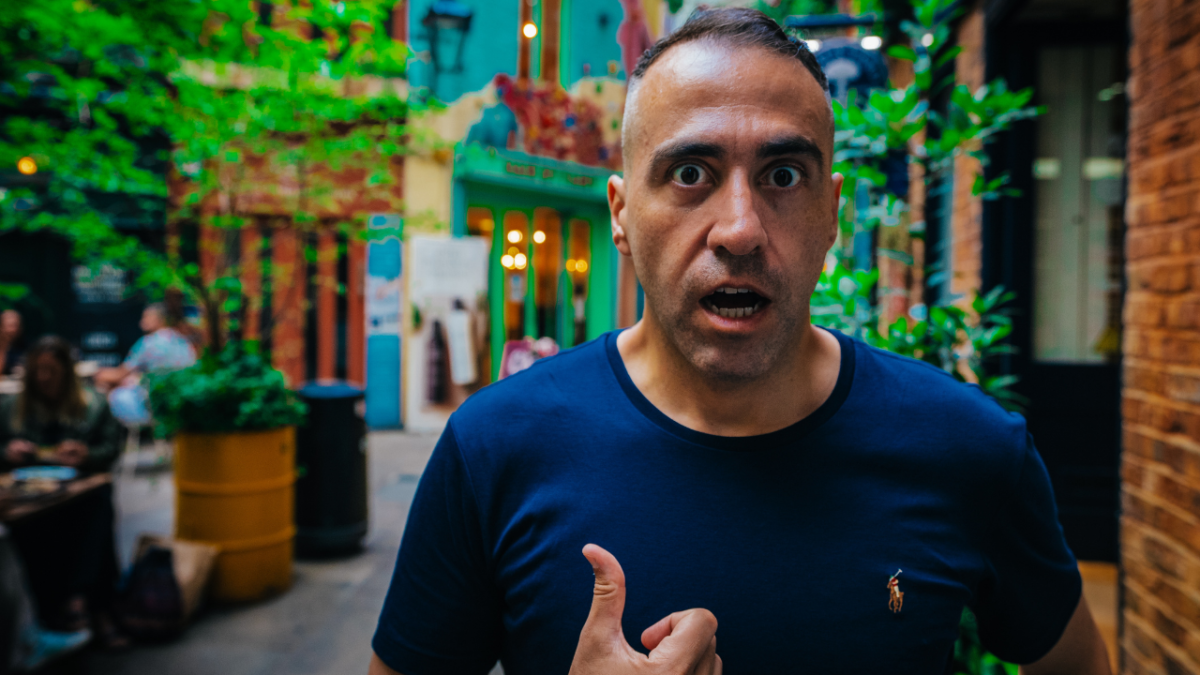Life in London vs Buenos Aires – Part I
As an Argentinian who has fallen hard for London (I’m on my 9th year here), I have definitely experienced the best (and worst) of each place. But how’s really life in London and Buenos Aires?
First things first. Before moving to London, I lived in many places in France for 3 years, so I had some sort of transition period.
So let’s talk about 4 differences between life in London and in Buenos Aires. By the way if you want a deep dive and understand how’s a wedding in Argentina, please check click here.
But before starting, I need to say that everything that I’ll mention in this article is before the pandemic and based on my personal experience. Things might be slightly different for different people.
In fact, I’ve also made a video about life in London vs Buenos Aires in case you want to check:
1. Weather ⛅
The weather in London is unpredictable. It’s not wild or that dramatic, but it’s always changing. Most days we see cloud, rain and potentially a bit of sun. It’s not unusual to not have 3 elements in a day. This means when it’s sunny, it won’t be for long. The Brits put down everything and run outside to stressfully try to take it all in. Days of sunny weather will never last more than 3 days and days of rainy weather the same. But cloud is by far the most common sky condition.
In Buenos Aires, seasons are very distinctive. You know when it’s summer, autumn, winter and spring. Summer is probably the most challenging period as the temperature can go as high as 40 degrees. So it’s common for people to have A/C pretty much everywhere. In London A/C is not that common in residential property but more in offices and retail segments.
Of course in the last 10 years or so, we can see fluctuations everywhere due to climate change but that’s a different story.
2. Groceries & Food 🥫
In London, we can get most of what we need in a big supermarket. So let’s say we can go to Waitrose, M&S, Tesco, Sainsbury’s, Aldi, Lidl, Asda, Morrison, Iceland, Co-op and so on. There’s so many stores.
In Buenos Aires, buying food differs a lot. Instead of running into one store to get the weekly shopping, we prefer shopping at more targeted shops. We go to the bakery for bread, to the butcher for meat and the grocer for fresh vegetables and fruits. Supermarkets are really more for very basic stuff. So, shopping takes a little while.
In terms of food, London is seriously international. We all know the classic English Breakfast, Fish & Chips, Pies and Sunday Roast but this is not really a London thing. This is more at the country level to be honest. So we can really choose if today we want to eat Indian food, Middle Eastern cuisine, Italian, Spanish or French. Or perhaps Asian, Peruvian, Mexican, Brazilian, African. Vegetarian/Vegan you say the name, you have it in London. It’s a multicultural place.
In Buenos Aires, there are lot of meat restaurants as expected (even though it’s not just unique to the city but the country itself). Believe it or now, nowadays vegetarian/vegan culture is a growing area. But what’s interesting is that you can also find countless ice cream shops, pizza and empanadas (like cornish pasties) restaurants and takeaway places. It’s really a big thing.
Now, you might think… “hey this is not Argentinian”… well it’s important to remember that there was a great European immigration wave to Argentina in the late 19th and early 20th century, consisting mostly of Italian and Spanish immigrants and also in a smaller scale French and Germans. So many of us have at least 2 nationalities. In my case Italian/Argentinian but this is the case of many people from Buenos Aires. I’m saying this because the food is also influenced by Southern European countries.
3. Healthcare 🏥
Healthcare is not just something we can discuss at the city level. It’s a country level conversation.
In the UK, there’s a state-funded system called the National Health Service, or NHS, which guarantees care for all. That means everything from ambulance rides and emergency room visits to long hospital stays, complex surgery, radiation and chemotherapy — are all free. Well, they’re paid for with payroll taxes. In addition, any medication we get during a hospital visit is free, and the cost of most prescription drugs at a pharmacy are relatively cheap. There’s also Private health care in the U.K., paid out-of-pocket or through private insurance coverage, but only a small minority of residents go for it. If we’re in the corporate world, there’s a chance that we have access to Private health already.
In Argentina there’s also public and private. However, private hospitals are common in Buenos Aires and companies are required to provide health insurance for their workers and most policies cover hospital visits and a variety of prescription drugs and treatments.
Buenos Aires is also a popular destination for medical tourism, with many foreigners travelling to the city to get plastic surgery as obviously it’s affordable for people coming from abroad.
So in London is OK just to have the “free” health service (NHS) whereas in Buenos Aires something might be wrong if you don’t have access to Private Health. I don’t really want to go into a lot of details because both are different scenarios.
But I used in both cities public and private health and I have to say. Public, you can have a long queue in both although in London you can have access to more modern technology and hospitals in London have larger medical supplies. If you go Private, both cities are fast (as most of the times when we pay for something right). However, in London appointments tend to be shorter. I had many times 15-minutes-appointments whereas in Buenos Aires, they give you 30 minutes. Once again, London is about business and also optimising time. And sometimes in Buenos Aires when we go to the doctor, we feel like we’re also going to our psychologist.
I feel like both cities and countries have really great doctors but at the end of the day budget is such an important factor in the success of the system.
And because we’re talking about systems, then let’s discuss the Time Management system in both cities.
4. Time Management ⏱️
Punctuality and efficiency are the keys to the hectic life of a Londoner. Whether it’s rushing to get to work on the tube, eating a quick lunch at Pret a Manger (French name but it’s a British chain), or starting Friday night at 5pm, we don’t waste a moment in London. It’s all about optimising every minute. But this is bringing impatience, which is something that we better leave behind if we want to keep our sanity in Buenos Aires. Because “Porteños” run on their own clock, which is one that has usually been set a couple of minutes or hours late. 😅
Buses in Buenos Aires, for example, they can have many stops and take you very far, but they don’t have a predictable or consistent schedule. Same with the Tube. And we know in London, we have timetables that even though there can be some delays or cancellations, generally they’re consistent. Commuting in London is very structured and we all know what to expect whereas in Buenos Aires it can be more like an adventure sometimes.
Meeting friends in London and in Buenos Aires is also a bit different. Let’s say we want to go for a drink in London. We agree to meet up at 7pm and we’ll be on time or potentially a minor delay. In Buenos Aires though, first of all we will never meet at 7pm as it’s too early. We might agree at 9pm and we’ll be arriving not before 9.30 or 10pm. Don’t ask me why. It’s just like that. So for people living in London might be a test of endurance and discipline to experience this in Buenos Aires.
Stay tuned as next week, Part II is coming!



